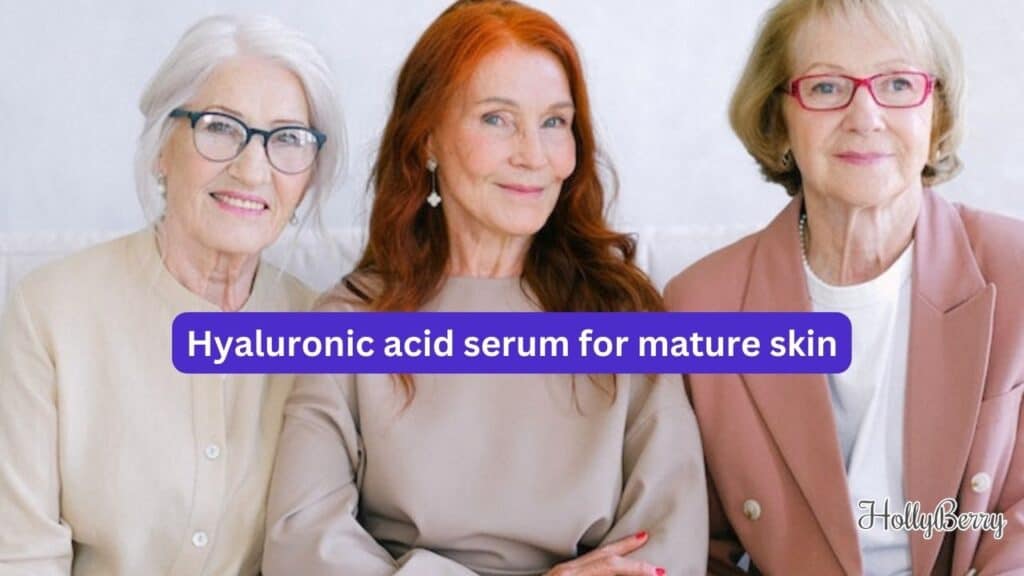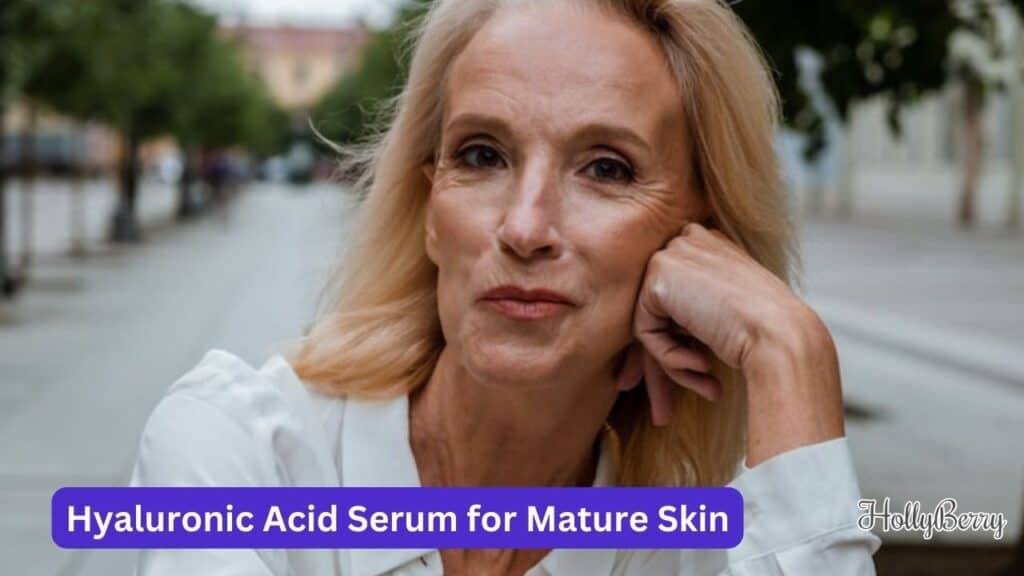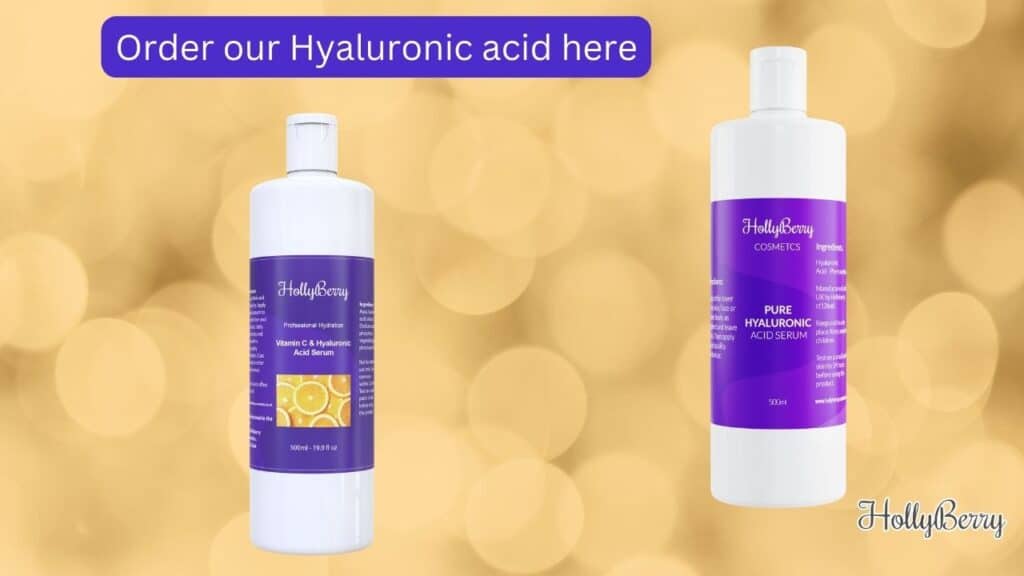
Hyaluronic acid is a naturally occurring substance found in the body that plays a vital role in keeping skin hydrated and plump. As we age, our body’s production of hyaluronic acid decreases, leading to wrinkles, fine lines, and a loss of elasticity in the skin. This is where a hyaluronic acid serum comes in – it can help to replenish the hyaluronic acid that our body is no longer producing, leaving the skin looking and feeling more youthful.
But not all hyaluronic acid serums are created equal. For mature skin, it is important to look for a serum that is specifically formulated for this skin type. These serums may contain higher concentrations of hyaluronic acid, as well as other ingredients that are known to be beneficial for mature skin.
In this post, we will take a closer look at hyaluronic acid serums for mature skin, including what they are, how they work, and what to look for when choosing the right one for you.
33 Game-Changing Tips for Using Hyaluronic Acid Serum on Mature Skin from Hollyberry Cosmetics
What is Hyaluronic Acid Serum for Mature Skin?
Hyaluronic acid serum for mature skin is a skincare product that is designed to help hydrate and plump up the skin, while also addressing the specific concerns that come with ageing skin. These serums typically contain a higher concentration of hyaluronic acid than regular serums, as well as other ingredients that are known to be beneficial for mature skin, such as antioxidants and retinol.
How Does Hyaluronic Acid Serum Work for Mature Skin?
Hyaluronic acid is a naturally occurring substance that is found in the body. It works by binding to water molecules, which helps to keep the skin hydrated and plump. As we age, our body’s production of hyaluronic acid decreases, leading to wrinkles, fine lines, and a loss of elasticity in the skin.
Hyaluronic acid serums for mature skin work by replenishing the hyaluronic acid that our body is no longer producing. The high concentration of hyaluronic acid in these serums helps to hydrate and plump up the skin, leaving it looking and feeling more youthful.
In addition to hyaluronic acid, many serums for mature skin also contain other ingredients that are known to be beneficial for aging skin. These may include antioxidants, such as Vitamin C and E, which help to protect the skin from damage caused by free radicals. Some serums also contain retinol, which is a form of Vitamin A that is known to help improve the appearance of fine lines and wrinkles.
What to Look for When Choosing a Hyaluronic Acid Serum for Mature Skin

When choosing a hyaluronic acid serum for mature skin, there are a few key things to look for:
High concentration of hyaluronic acid: As mentioned above, serums for mature skin should contain a higher concentration of hyaluronic acid than regular serums. This will help to ensure that the skin is getting the hydration and plumping it needs.
Additional ingredients for mature skin: Look for serums that contain additional ingredients that are known to be beneficial for aging skin, such as antioxidants and retinol.
Quality ingredients: As with any skincare product, it is important to choose a serum that is made with quality ingredients. Avoid serums that contain any known irritants or harsh chemicals.
Suitable for your skin type: Always choose a serum that is suitable for your specific skin type. If you have sensitive skin, for example, look for a serum

Vitamin C & Hyaluronic acid 500ml
Why is hyaluronic acid serum good for age spots
Hyaluronic acid serum is good for age spots for several reasons:
Hydration: Hyaluronic acid is known for its ability to bind to water molecules, which helps to keep the skin hydrated and plump. Age spots are often caused by a lack of hydration in the skin, so replenishing the skin with hyaluronic acid, it can help to reduce the appearance of age spots.
Collagen production: Hyaluronic acid is also known to stimulate collagen production in the skin. Collagen is a protein that helps to give the skin its elasticity and firmness. As we age, our body’s production of collagen decreases, leading to wrinkles and fine lines. By stimulating collagen production, hyaluronic acid can help to improve the overall appearance of the skin, including age spots.
Antioxidant properties: Many hyaluronic acid serums also contain antioxidants, such as vitamins C and E, which help to protect the skin from damage caused by free radicals. Free radicals are unstable molecules that can damage the skin’s cells and contribute to the development of age spots. By protecting the skin from free radical damage, antioxidants can help to prevent the development of new age spots.
Brightening properties: Some hyaluronic acid serums also contain ingredients that help to brighten the skin and reduce the appearance of age spots. These ingredients may include kojic acid, arbutin, and liquorice root extract.
Exfoliation: Some hyaluronic acid serums also contain exfoliating ingredients, such as glycolic acid, that can help to remove the dead skin cells that contribute to the development of age spots. Exfoliation can help to reveal brighter, more even-toned skin.
It’s important to note that, while hyaluronic acid serums can be beneficial for age spots, it’s important to use them in conjunction with other anti-ageing skincare products and sun protection to achieve optimal results. Additionally, always use products that are suitable for your skin type and avoid harsh ingredients, always consult with a dermatologist before starting a new skincare regimen.
In conclusion, hyaluronic acid serum is a great addition to your skincare routine if you have age spots, as it can help to hydrate, stimulate collagen production, protect the skin from free radical damage, brighten the skin, and exfoliate the dead skin cells that contribute to the development of age spots.
It’s important to use it in conjunction with other anti-ageing skincare products and sun protection, and always consult with a dermatologist before starting a new skincare regimen.


